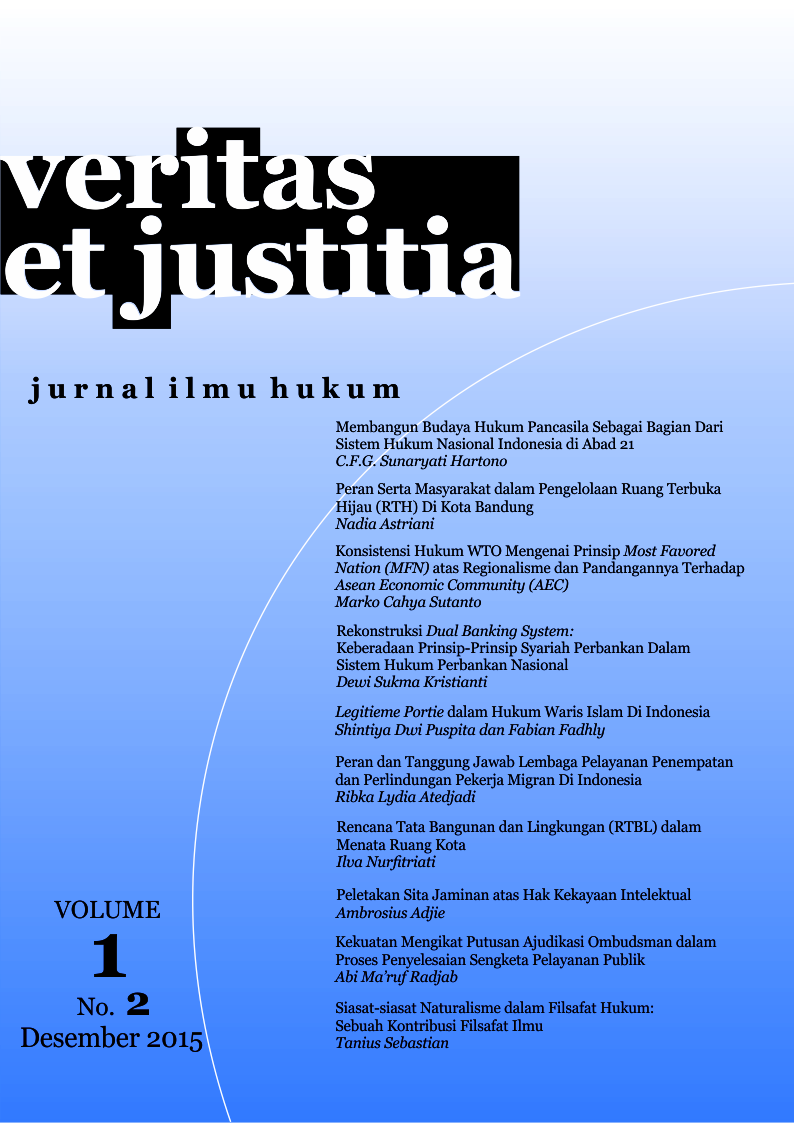REKONSTRUKSI DUAL BANKING SYSTEM: KEBERADAAN PRINSIP-PRINSIP SYARIAH PERBANKAN DALAM SISTEM HUKUM PERBANKAN NASIONAL
DOI:
https://doi.org/10.25123/vej.v1i2.1691Abstract
The legal practice of Islamic (Sharia) economics in the real sector of Indonesia’s national economic development by way of various institutions or Islamic (sharia-based) economic centers has had a positive impact on the growth and development of the national economy. The practice is based on Islamic principles, which have been shaped into a wide variety of regulations or legislation in effect. In the legal concept of Sharia economics, the state as represented by the government that implements Sharia-based economic practices must apply the principles of Islamic economics to achieve the goal of Islamic economic law. The purpose of this Sharia economic law emphasizes the benefits for society based on the balance and fairness thus attained to present a showcase of the politics involved in Islamic economic law. The actual reality of legislation in Sharia-based economic activities issued by the government still falls decidedly short of expectations when compared to conventional economic activities and legal certainty in other countries, due to the role that Islamic economic law plays in determining the government’s political direction and ways of formalizing Islamic economic law in Indonesia.Downloads
Published
Issue
Section
License
Authors who publish with this journal agree to the following terms:
Authors retain copyright and grant the journal right of first publication with the work simultaneously licensed under a Creative Commons Attribution License that allows others to share the work with an acknowledgement of the work's authorship and initial publication in this journal.
Authors are able to enter into separate, additional contractual arrangements for the non-exclusive distribution of the journal's published version of the work (e.g., post it to an institutional repository or publish it in a book), with an acknowledgement of its initial publication in this journal.
Authors are permitted and encouraged to post their work online (e.g., in institutional repositories or on their website) prior to and during the submission process, as it can lead to productive exchanges, as well as earlier and greater citation of published work.
The Journal allow the author(s) to hold the copyright and to retian publishing rights without restrictions.






